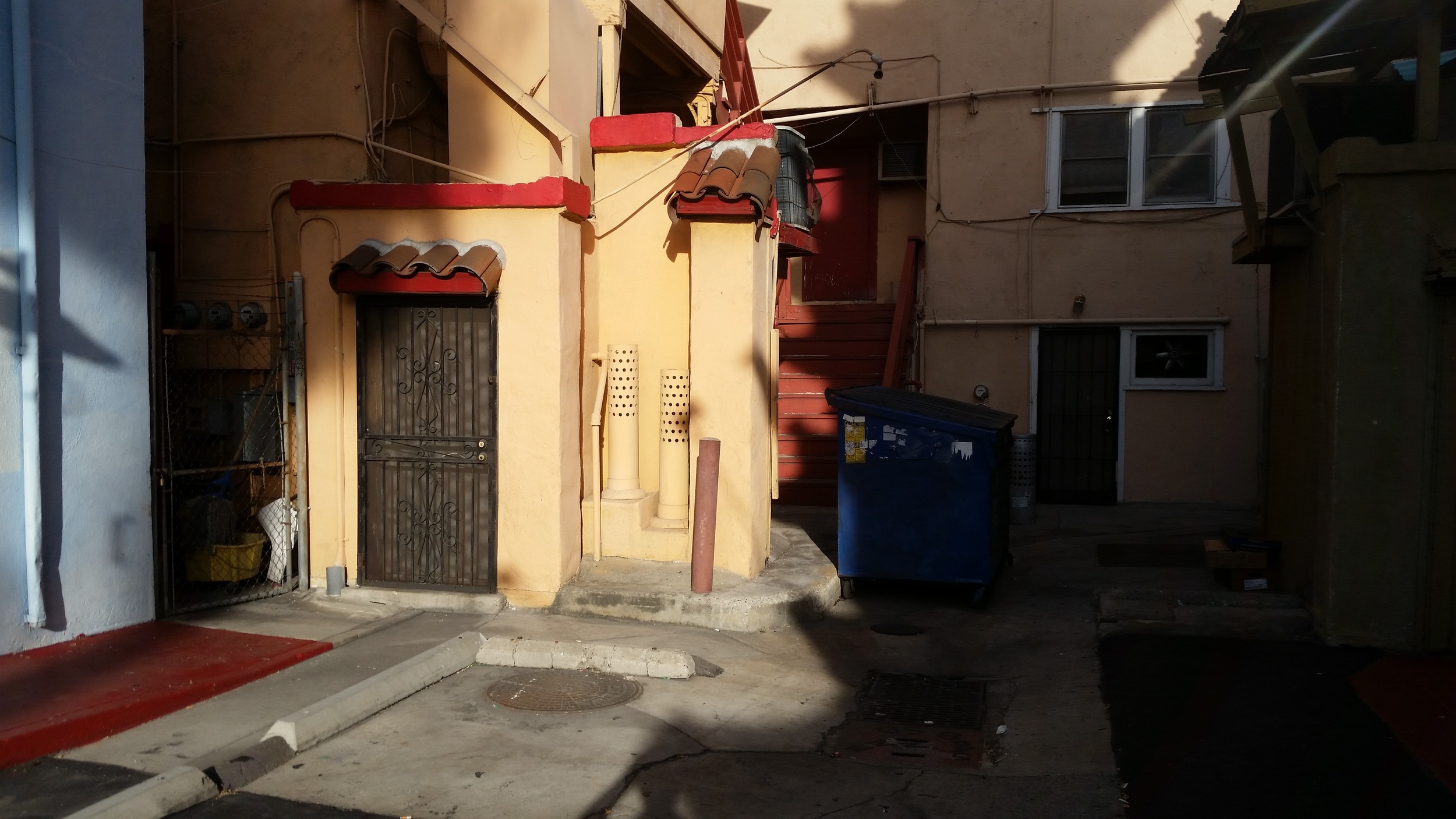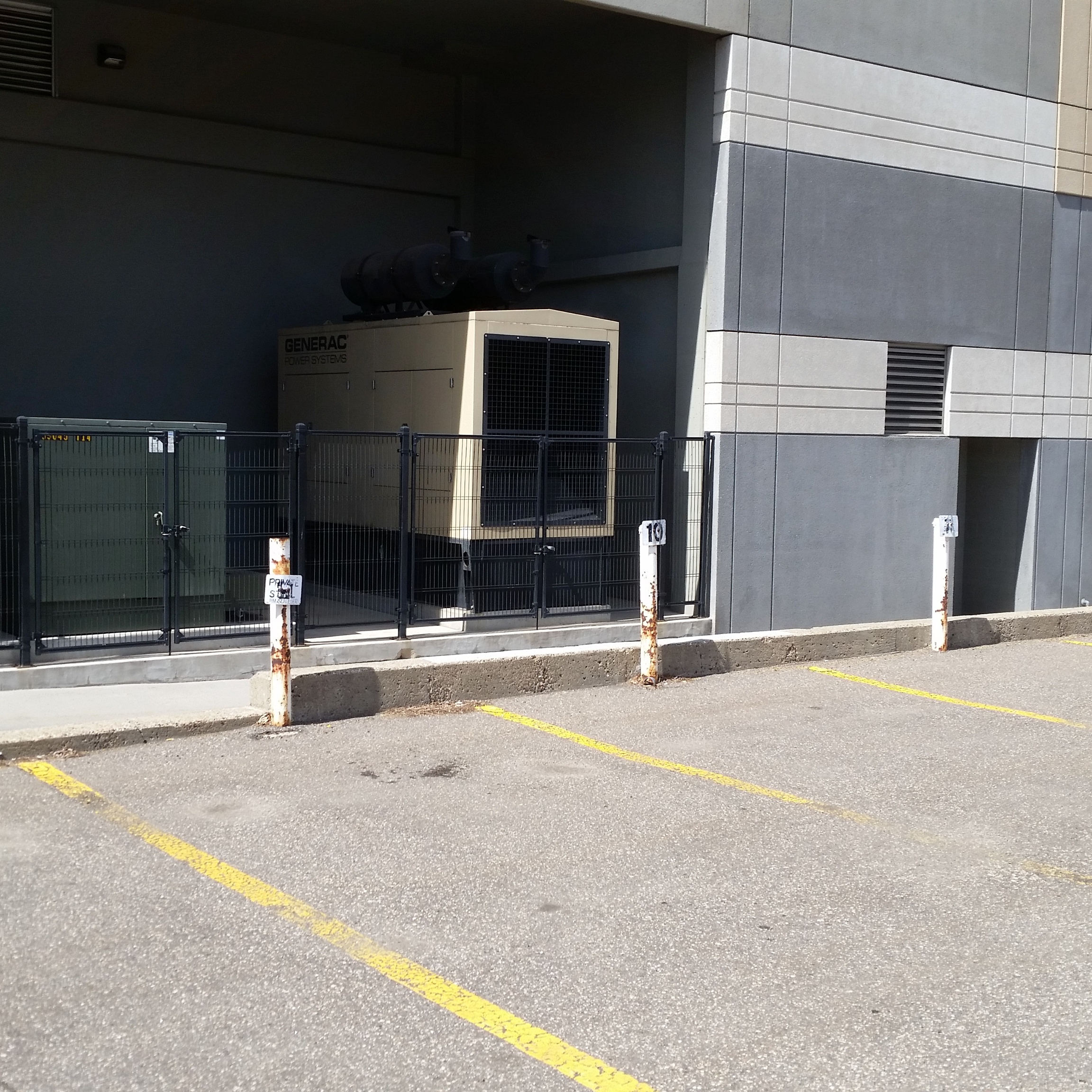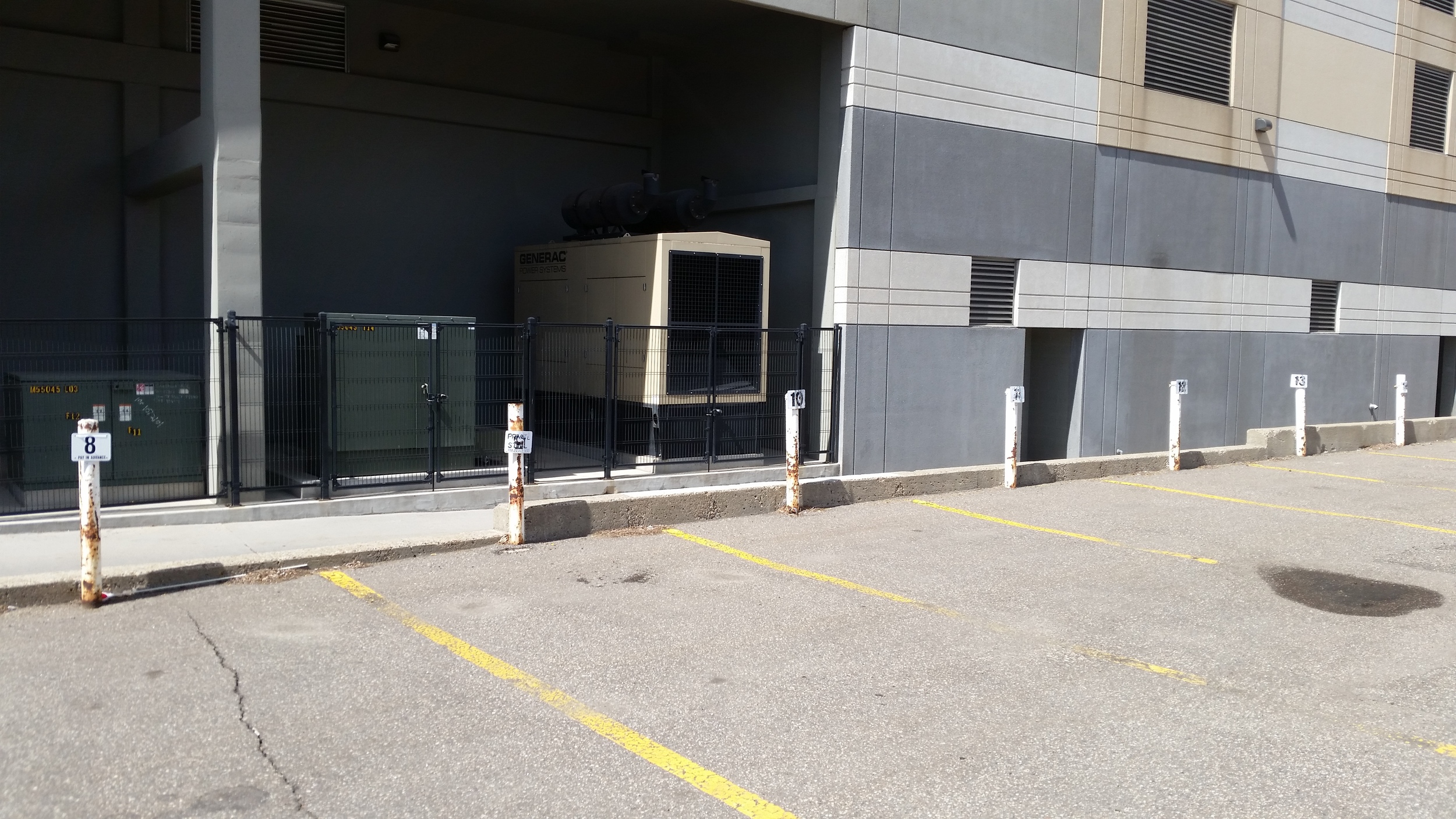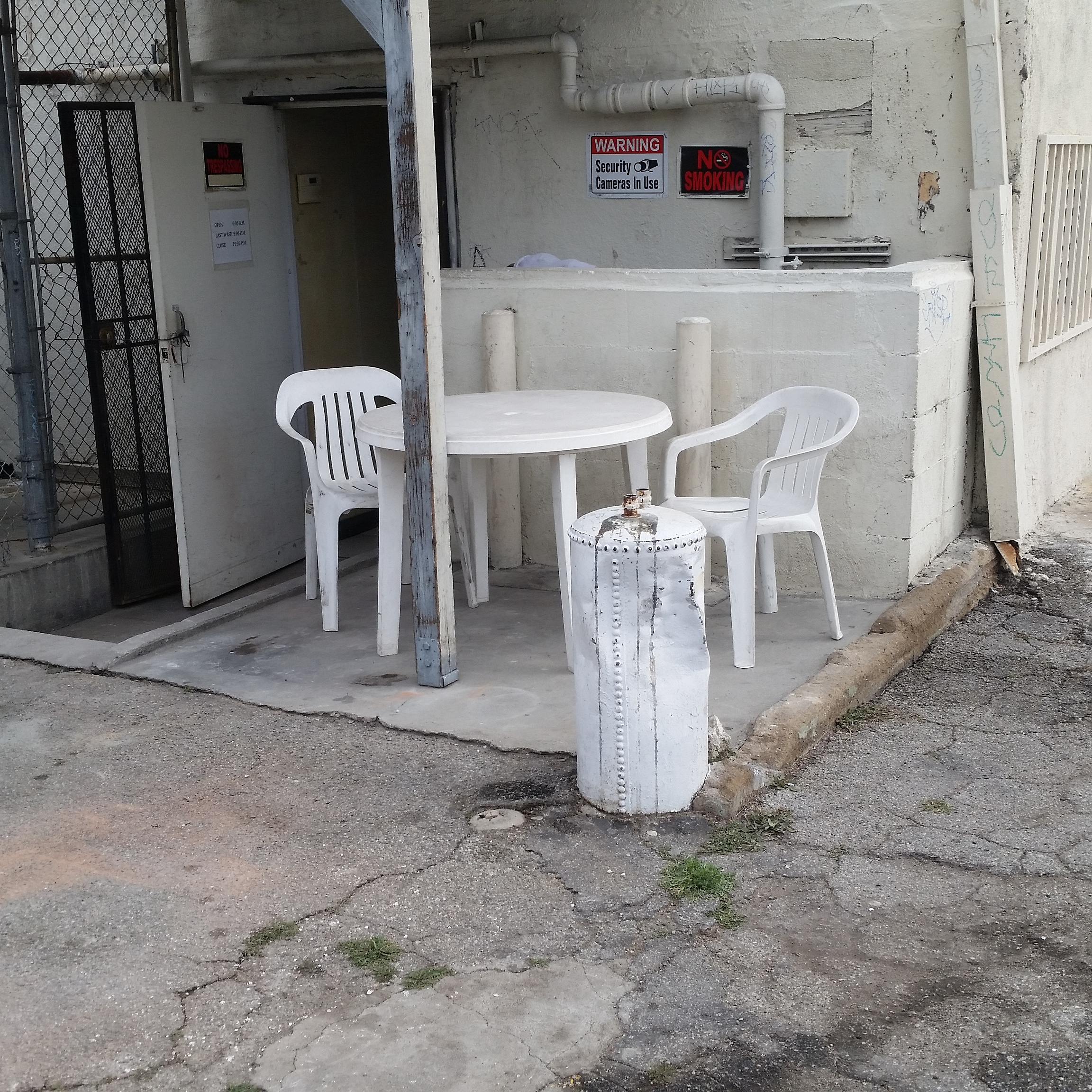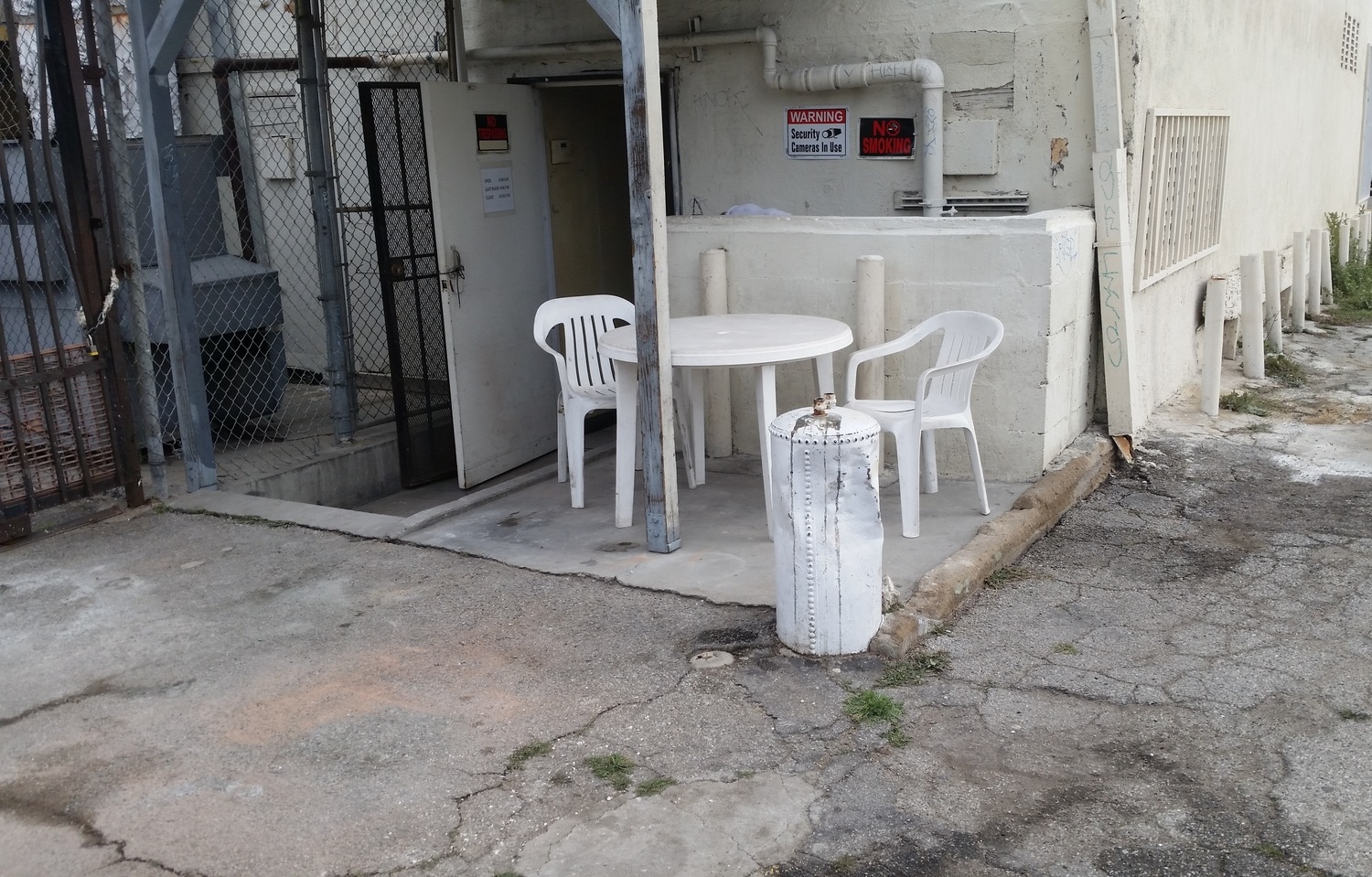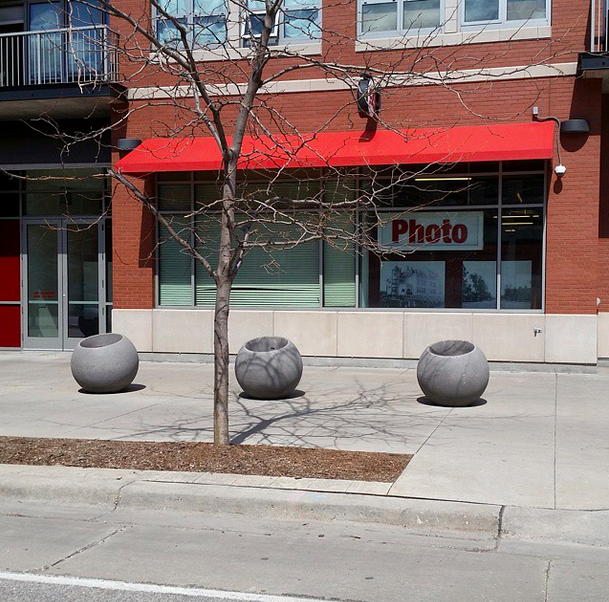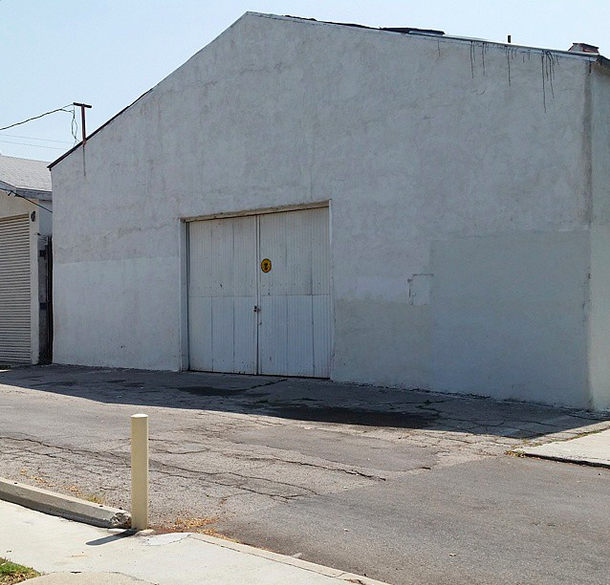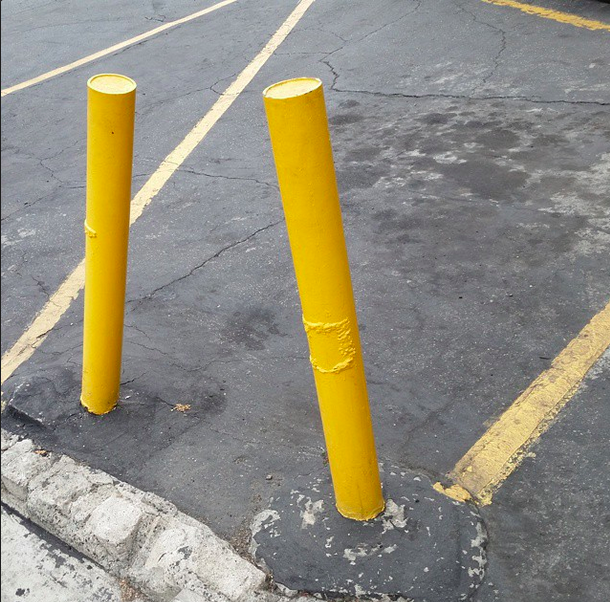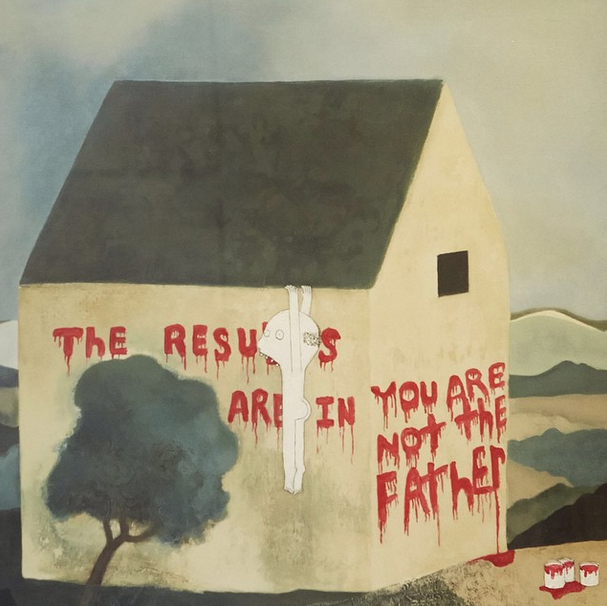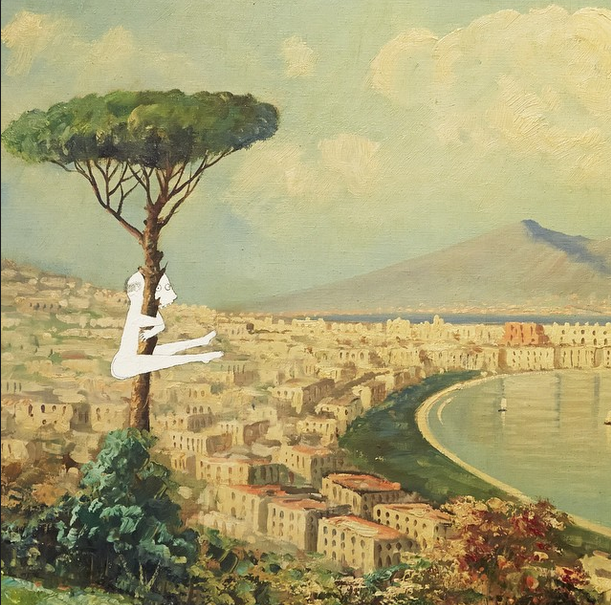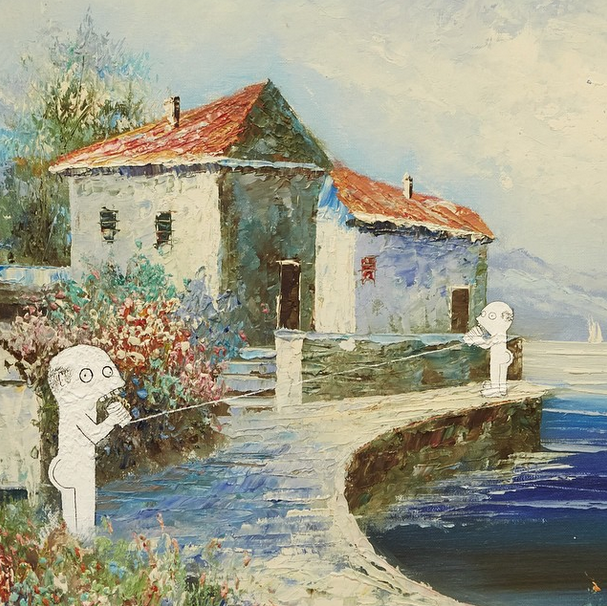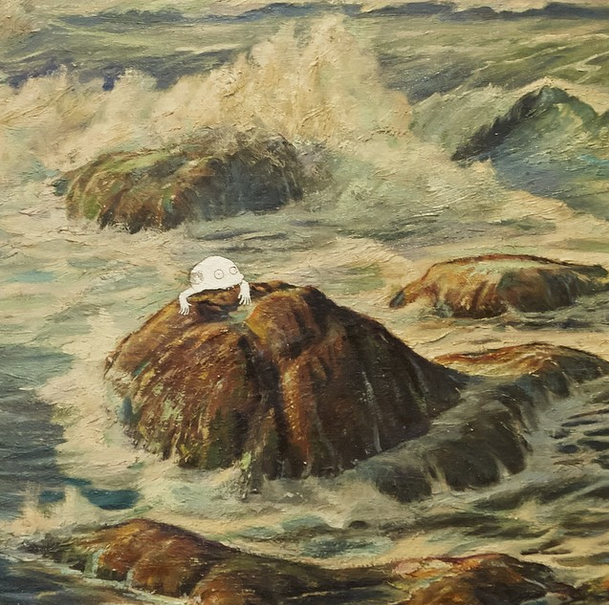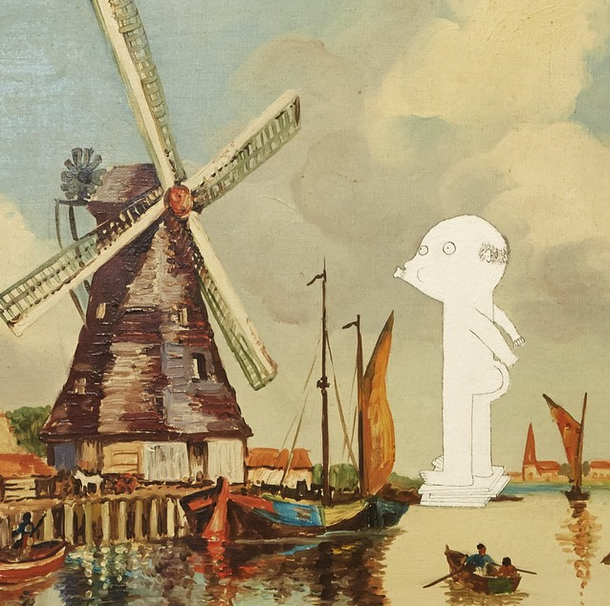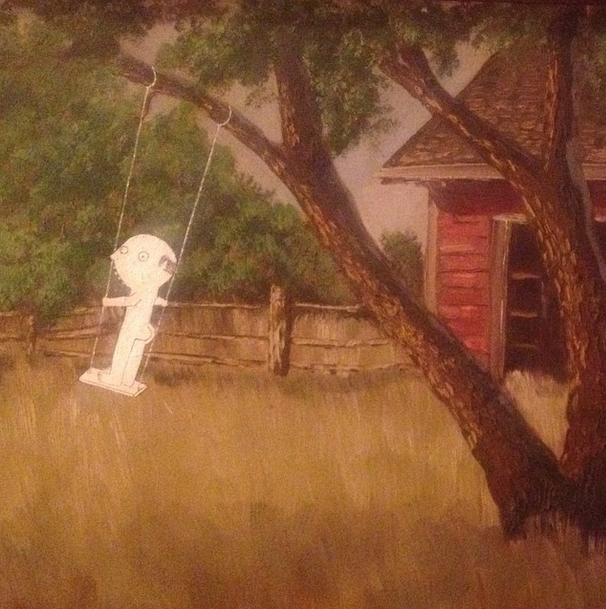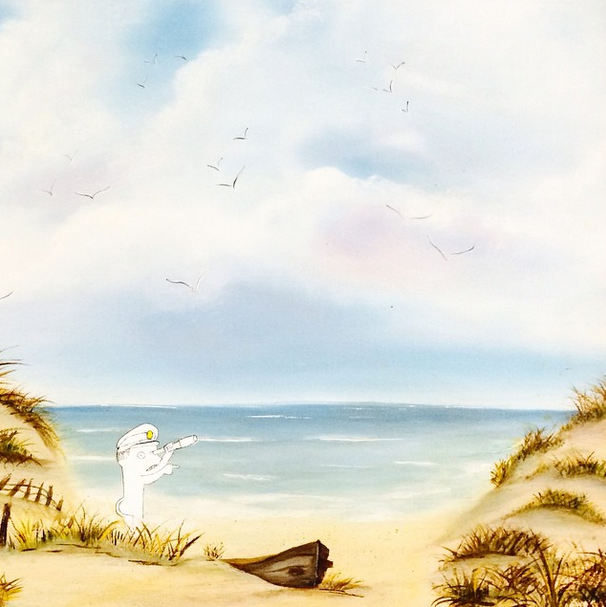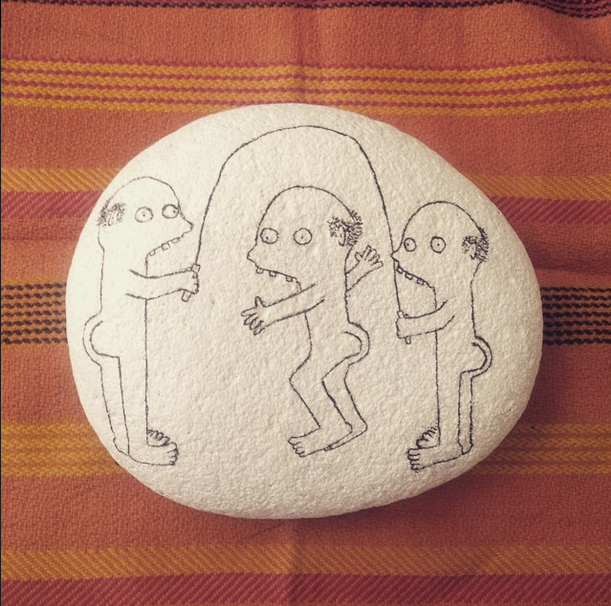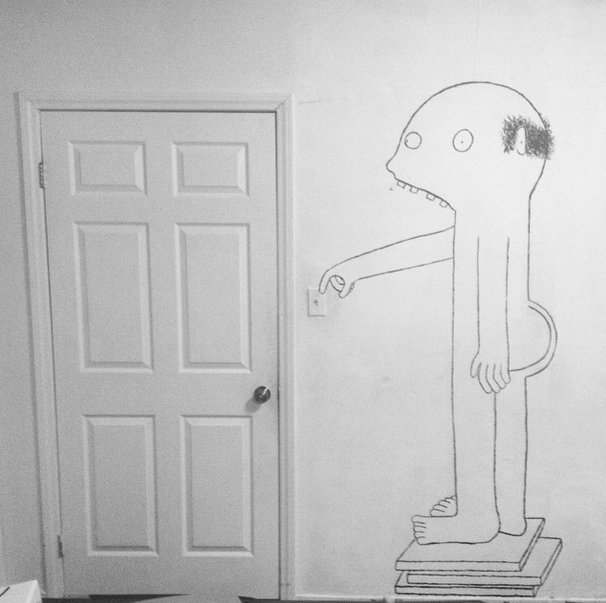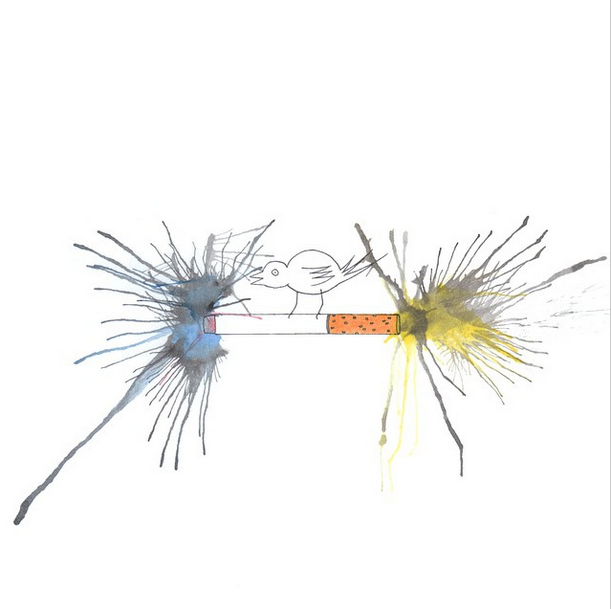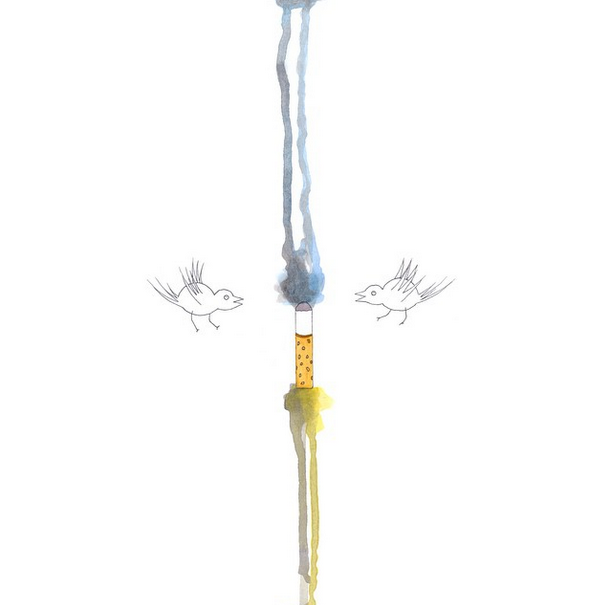Charlotte Evans was a fifty year old bartender.
"Whiskey on the rocks," Frankie said, as he adjusted the sound on the remote. "Did your ears get shot off on duty?" Charlotte asked him as she added ice to his drink. " My pension doesn't say anything about hearing loss, Charlie."
The ritual was well established. Frankie would use the nickname she hated, and play the role of tough ex-cop. He had been a cop, but he faked the tough.
Tom arrived and Charlotte placed his beer at his spot before he sat down. Some guests wanted their drinks without asking. Others did not.
"I felt like I hit a grand slam in the bottom of the thirteenth, first pension check I got," Frankie told Tom and the couple at the high top behind him. Any hearing person in his vicinity heard about Frankie's pension.
Since Rocco's arrival, Charlotte preferred anything Frankie said to Rocco's comments. "Broad's too old for this place." "She must be giving the house away...Why else would they come?" The owner hired Rocco to spy on long time employees, like Charlotte. He counted the cash drawers often, making sure no money was pilfered by her or the other bartenders. His was also the job of watching to see that the regulars didn't get that extra drizzle of brew or spirit.
Making sure the busboys emptied a trash can or two should be his job, Charlotte thought. The patrons walked to the bar in the city, lending little harm to Charlotte's topping off here and there. Soot-stained overalls made their way to see her before the trudge to their row houses or apartments. She felt respected by the guys who worked with their bodies, laying bricks or painting roofs. A few offered Rocco a short trip outside when he uttered a rough remark about her. They also understood that their tips were her paycheck.
Charlotte had worked in fancy clubs where the guests signed for her service, often leaving her struggling to pay her rent on time. She felt at home with Frankie and Tom, and most of her regulars. She also felt his presence, the little face, no bigger than an orange, who arrived in a hospital three blocks from here, thirty years ago.
She allowed her parents to influence her decision to let him go, not knowing the price of such a loss. Each year since, most keenly the day in July, punctuated with fireworks, Charlotte grieved the loss of her son. Having given up on his interest in finding her, she felt comfort working close to the site of his arrival.
"Those rocks glasses aren't going to wash themselves, lady," Rocco said, just when the owner stopped by to check out the place. She really didn't fear the owner, as she had outlasted too many managers to count. But she could feel herself coloring and turning from her visitors, ignoring Rocco while he sauntered by.
"She's home spending my pension. 'Home shopping' thing on TV," Frankie told the couple to his left. Charlotte noticed Frankie's failure to charm. Unusual.
The clatter coming from the restaurant caught everyone's attention.
"Man down! Call 911!"
Servers gathered around a booth. Charlotte came out from behind the bar. Rocco's fists were pounding the chest of a hulk of a man, and Charlotte rushed over to help him. She reached under Rocco's fists and took over the chest thumping.
Rocco gave her a break, just when the stretcher arrived banging into a dessert cart, spilling some gooey contents onto the floor.
Rocco. kneeling beside the booth, locked eyes with Charlotte. "Nice work, Charlotte." She noticed he called her by name. Frankie helped them up. "Force could of used you two. Saved the sucker's life."
The sucker played high school football with Rocco. Played better than Rocco. Got a partial scholarship to Michigan and played until he blew out his knee in junior year. Charlotte learned all this at the end of her shift. Rocco had closed the place after the episode, amidst complaints from the servers that he was starving their children or keeping Pebbles from the vet. The young ones, living with their parents, took their freedom out back, stinking up the dumpster area with the strong smell of weed.
Frankie asked Charlotte to join the fellows for a drink. She stared him down better than many of his perps. "The big guy wants you there," Frankie whispered to her, his breath smelling of the cigarette he stepped outside to smoke. Good thing Frankie's not near the dumpster, Charlotte thought. Her hands were trembling as she poured a draft beer to join the men at the bar.
Tom and Frankie provided the buffer she needed. One life-saving CPR session didn't wash away the ill will she felt for her boss. But Frankie had a way with her that she couldn't resist. He also knew about the little treasure she had given up that summer, long ago.
"Where'd you learn CPR?" Rocco leaned forward on the bar to see past the guys.
"I have a life, Rocco." Charlotte hoped he could picture her sipping wine in an evening dress, hitting tennis balls at he club, or even playing cards with friends.
"Charlotte isn't married to this place, Rocco. My buddies who guard the hospital told me your buddy came through O.K. Hooked up like an octopus but gonna make it." Her actual name uttered twice in one evening. Did emergencies soften people?
Her hands still trembling, she listened to the football stories around her.
The blocking that Rocco and Matt did, so the running backs could weave their figure eights to the goal line. "He was better than me though...stood out enough to get him to Michigan," Rocco told the guys.
Knowing she was not expected to talk football gave Charlotte the chance to imagine her son bobbing and weaving down the field. Maybe a quarterback, lean and quick-witted like her dad. Or a musician with long fingers massaging piano keys, or strumming a guitar. Or maybe he became a teacher, inspiring students, planting memories in them when their hearts were open, in harmony with life. When her fantasies took her to images of his being a junkie or a thief, she grabbed a bar rag and began to wipe it clean.
She realized she had forgotten to clock out of her shift. No more time cards in a clunky basement machine. She had to go back to the computer to punch in her worker number. The guys continued to tell their war stories. The episode had rocked them all. Before Charlotte grabbed her jacket to walk home, she took the bar rag over to the gooey spot on the floor next to the dessert cart. Rocco said, "I've got it, Charlotte."
Awakened by a noisy truck, Charlotte fixed herself a cup of instant coffee. While trying to read the paper, she felt distracted and restless. She decided to call City Hospital to check on her patient. Rocco had referenced his last name in some of his tales. Before placing the call, Charlotte checked the adoption website, a habit as natural to her as breathing.
The harried hospital phone operator put her on hold, coming back on the line with a room number and a condition: stable. Rarely impulsive, Charlotte surprised herself. She decided to visit Matt Wilson. Although she would prefer to wear her sneakers, she chose her dressy black slacks and shoes. She didn't know why she was doing this, but it felt right.
She boarded a bus for the short trip remembering to bring the exact change. She chose a seat in the front, next to a man in a business suit, his face tight, his lips pinched together. A stench of garbage entered through the electronic double doors. Charlotte looked through the wide windows in the front of the bus and saw they were behind a city garbage truck.
Regretting her outfit, she knew she could get to the hospital quicker in her sneakers and jeans. At least I won't miss my stop, Charlotte thought as the garbage truck rumbled along in front of them. The streets were too narrow for the bus to advance.
She looked past the man beside her to see two spiked-hair teenaged boys approaching an elderly woman, her purse clutched tightly to her chest. They pointed to the light and stopped her from advancing into traffic, then continued on their way, their baggy jeans hanging loosely on their skinny butts.
The bus driver announced the stops in advance of his pulling over to the curb.
"City Hospital next," he said as she felt her stomach rumble as the bus pulled right in front of the entrance. The building was large and imposing. She nearly froze in her seat as the bus driver repeated "City Hospital. One stop only." She got up from her seat and descended the steps of the bus and walked into the lobby.
A blast of cold air hit her as she walked over to the large oval desk marked Visitors.
"License, please." the young woman behind the desk said, looking bored and a little hostile. As Charlotte fumbled through her wallet for her license, the woman said "Patient name" and Charlotte straightened her shoulders and said "Matthew Wilson" as if she and Matt were good friends. The receptionist looked at the the license, then up at her, and wrote Charlotte Evans on a sticky name tag. She handed the tag to Charlotte, all of her stubby fingers adorned with rings, her wrists jingling with bangle bracelets. "Room 404. Go left."
In striking contrast to the sullen receptionist, Charlotte was greeted by a perky teenager, a hospital volunteer, to escort her to the elevator. Double doors swooshed open for them and she nearly gagged on the antiseptic odor of the hospital corridor, barely concealing the scent of sweat and urine. The youngster appeared immune from scents, bouncing along with her golden curls like cork screws swaying down to her waist. Another set of doors and they were back in the lobby area. " I'm new." Carlie said. Charlotte didn't mind the detour as she felt nervous and ridiculous for visiting this stranger.
When the elevator stopped on the fourth floor, she got out and saw the signs directing her to the lower numbers, Room 404. Having the detour prepared her for the peculiar hospital scents. She squared her shoulders and approached the room, her heels clicking along the hard floors. Rm. 404 Wilson, M., the name stuck into the plastic holder.
Not quite an octopus, Charlotte thought as she peeked into the private room. He did have a small tube in his nose extending to a wheeled machine with a screen next to him. He noticed her instantly, giving her no time to retreat from her fool's mission.
"Mr. Wilson? I'm Charlotte Evans. We met last night at The Beacon."
"That Charlotte? Who helped Rocco? You just missed him" he said as if being pumped back to life were an every day happening. He beckoned her over to shake his hand which was calloused and strong. He gave her a hearty handshake and looked directly into her eyes. Losing his bluster, he bit back his lower lip and said "Thank you. You and Rocco saved my life.'
"Mr. Wilson."
"Matt."
" I can't explain why I'm here, but I'm glad I came. You look pretty good. What are the doctors saying?'
"That I had a heart attack and I'm lucky to be here. But with the right meds, I should be here to meet my grandkids." With that, his wife walked into the room and Charlotte excused herself. After a short introduction, she backed up to leave and Matt said, "Rocco gave you a lot of credit."
Charlotte didn't know if the moon were full or the earth had shifted, but as she made her way out of the hospital, she smiled and looked forward to telling Frankie and Tom about the visit.
When she got home and changed her clothes into her comfortable sweats, she went to the computer. There were still a few hours until her shift at The Beacon began.She browsed the web for new sneakers and wanted to make the one click for them to appear, like magic, at her front door. But she decided to wait and try them on as she spent so much time on her feet.
She answered a few e mails and saw something in her in-box that shook her to her foundation. THIS IS NOT SPAM. Birth mother search confirmation. The subject line of the e mail.
She scrolled down and read a short note from someone she had waited thirty years to meet again.
My name is Michael De Lucia. I have been aware of you since I turned eighteen, and have followed your entries on the adoption website. I believe you are my birth mother. My mother died last year, and I needed to respect her feelings about contacting you. I understand that this may upset your life. I do not intend to impose myself on you, but if you would be open to meeting me, I would like to meet you. I want to thank you for giving me life, which has been good so far. My wife, Terry, has been encouraging me to do this.
Sincerely.
Mike De Lucia
P.S. I was born on the Fourth of July.
Charlotte read the message over and over. She grabbed a Coke from her fridge, wanting something stronger, but knowing her shift would start in a few hours. She paced around her apartment, her breath coming in short gasps and gulps. Michael. She spoke the name aloud, liking its' sound. Michael, married to Terry. He was real and he wanted to meet her. She wished she had a sister to call to calm her fears, to enjoy this news, to guide her response. Her own parents, gone for more than a decade, were no longer here to help her. She felt a wave of resentment toward them, especially when she re-read the line about his mother.
The earth had shifted. Charlotte's world had changed. Her son wanted to enter it.
She watered her plants, and rinsed her coffee cup, knowing she was avoiding her response. What if I write the wrong thing? she thought, as she stared straight ahead, her vision blurry with tears. Her work gave her an understanding of men, and how hard it is for them to talk about things that mattered. She owed it to Michael to write back. And she did.
Dear Michael, I have missed you every day. Nothing would make me happier than meeting you. Please let me know where you want me to be. I am so thankful your life has been good.
Sincerely,
Charlotte Evans
Feeling more like herself behind the bar at The Beacon, Charlotte remembered her guests' drink choices. "House red for the lady. Bottled Bud, no glass for the Mr." The couple she was serving hadn't been in for a while, and they both lit up like they had won the lottery when she remembered their drinks. They brightened even more when she asked how their son Thomas liked college.
She left the remote at Frankie's spot at the bar, hoping he would blast the sound so she could share her news without being overheard. All she needed was a stoned server or a useless busboy churning the rumor mill.
True to form, the sound from the television escalated. Charlotte leaned across the bar toward Frankie as she handed him his drink.
"I have big news."
"You went to the hospital to meet the guy. I already know. Just missed you there."
"Yeah, but that's not it. My kid got in touch. Sent me an e-mail.His name is Michael.
Wants to meet me."
"Ah, Charlie. He's gonna love ya."
Finding restraint an over-rated virtue, Frankie shared Charlotte's news with Tom and a few of the regulars. Armed with Michael's full name and date of birth, he even had one of the guys on the force do a background check. Clean. It didn't take Charlotte long to catch on.
"How do you know he's a landscaper? He just told me that today."
"We have to look out for you, Charlie."
Near the service bar, one of the servers was gesturing toward Charlotte.She walked over and a scruffy-looking guy with a nose ring held a colorful basket of flowers. " Last delivery of the day for Charlotte Evans.My boss said to wait until five." She handed him a tip and thanked him.
"Secret admirer?" A man near Frankie said. Charlotte set the lush arrangement on the bar. The golden rust-colored flowers sprouted from the tasteful basket, mixed with daisies and ferns. Charlotte opened the card, read it, and showed it to Frankie. " Matt Wilson and family."
Rocco and a few servers walked over to see the flowers. Frankie showed them the card. Rocco's shoulders sagged as if letting go of hostility, and said. "Good work on Matt, Charlotte."
Charlotte heard but did not see him, as she was busy wiping a spot on the computer, her back to them all.
Charlotte's son was faithful in sending and returning e-mails. He lived in a neighboring suburb, and his busiest work days were toward the weekend. He invited her to dinner at DeMarco's Ristorante, close to The Beacon, the following Tuesday. His love for his father shown through his descriptions of DeLucia Landscaping, which his dad had started before he was twenty. His dad had introduced him to De Marco's for special occasions when he was a little boy.
A stab of pain went through her as she read this. Not only was Michael real, he belonged to the people who raised him. And here she was, a bartender in an apartment, with little to brag about. She combed through her closet looking for an outfit to wear next Tuesday.
Michael knew she worked at The Beacon, so he couldn't expect her to be like the ladies at the club where she once worked, bejeweled, and signing slips of paper for their meals, bemoaning their putting or tennis serve.
A flush of shame crept through her when she realized how petty she was being, begrudging Michael anything. She also felt ungrateful for resenting her job, and her buddies at the bar. Hell, even Rocco was warming up.
Saturday night, three days before DeMarco's, the bar was slammed. Her long time bar back cleaned glasses, worked the service bar, and got the food runners moving to get the meals delivered. Rocco poured a few drinks and dug into the soapy water, his shirt sleeves getting damp and rumpled. Charlotte scooted behind him to get a coke for a new customer. She handed him a menu and told him she'd be right back. He left cash on the bar and disappeared.
Charlotte was so wiped out from the busy shift, she had no trouble sleeping, her nerves calmed by pure exhaustion. Her regulars assured her she'd do fine at The Ristorante.
Tuesday evening, she took a cab to DeMarco's. The host asked her to follow him to meet Mr. De Lucia. He guided her to a large round table. Completely surprised, the first person she noticed was Frankie, dressed in a brown suit and tie. Tom was next to him along with a few of the servers and busboys. She recognized her son in the group. He had ordered the coke from her the other night.. He hugged her and said "I'm Michael. I would have invited Terry if I knew about all this..." he said, clearly relieved by the company. "I've waited a long time for this, Michael," she said her tears flowing freely.
Frankie said, "We will let you two get to know each other, or we can stay and tell you a few good stories, like the time Charlie threw out the owner's brother when she was new."
"Or the night a keg exploded," Tom said.
"How she never once ratted me out to the boss." This, from one of the busboys.
"Stay. I hope to get to know this special lady."
He lifted his glass as he spoke and Charlotte noticed his hands were like her own father's, like one of her fantasies of her son. But he was really here, in Charlotte's world, and she remained quiet, breathing in the gratitude of his forgiveness, and gratitude for the boys from The Beacon.
Her friends from the bar didn't stay after all, and Charlotte and Michael enjoyed a delicious meal together. He didn't ask her why she had given him away, but she felt the need to explain the best she could. How different the times were, how helpless and ashamed she felt.
He placed his hand over hers, assuring her he had wonderful parents who loved him, and her choice led him to meeting Terry, whose picture he showed her on his i phone.
His utter delight with his wife was apparent, as he fumbled to find the best photos of her.
Throughout dinner, Charlotte was struck by his confidence, his poise in dealing with the staff at De Marco's, many of whom he knew. How easily he had chatted with the crew from The Beacon. Her small package had been cared for by good people, and she felt all traces of jealousy and resentment fade away. They made a plan for her to meet Terry and his dad later that week.
While walking her to her cab, more boyish and less poised, he said, "Watch the fireworks with us this year." And with his eyes glancing sideways, he whispered, "I always hoped for that."
"I did too, son. Every.... Single.... Day."
Charlotte asked the cab driver to take her to The Beacon. Frankie promised they'd find a way to keep the place open for her, no matter what. And they did.


